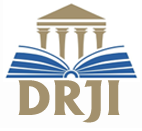IMPROVING STUDENTS' VOCABULARY MASTERY BY USING QUIZIZZ APPLICATION IN JUNIOR HIGH SCHOOL
Abstract
Keywords
Full Text:
PDFReferences
Aishah. (2021). The Effect of Using Quizizz Application on Students' Vocabulary Achievement. Journal of English Language and Literature, 9(1), 34-43. Https://www.iiste.org/Journals/index.php/JELL/article/view/60925
Amornchewin, C. (2018). The Effect of Using Quizizz as a Learning Media on the Learning Motivation and English Achievement of Secondary School Students. Kasetsart Journal of Social Sciences, 39(3), 423-429.
Https://doi.org/10.1016/j.kjss.2018.04.007
Arikunto, S. (2006). Prosedur Penelitian: Suatu Pendekatan Praktik. Rineka Cipta. Https://adoc.pub/arikunto-suharsimi-2006-prosedur-penelitian-suatu-pendekatan.html
Arikunto, S. (2010). Prosedur penelitian: suatu pendekatan praktik. Rineka Cipta. Https://adoc.pub/arikunto-s-2010-prosedur-penelitian-rev-ed-jakarta-rineka-ci.html
Bal, S. (2018). The Effect of Quizizz as a Digital Tool on English Language Teaching: A Study with University Students. Journal of Language and LinguisticStudies,14(2),80-90.
Https://www.jlls.org/index.php/jlls/article/view/440
Byrne, M. (2001).Interviewing as a data collection method. AORN journal, 74(2),233-233.
https://scholar.google.com/scholar?q=related:wX8nX_ScGYYJ:scholar.google.com/&scioq=Byrne,+M.+(2001).+Interviewing+as+a+data+collection+method.+AORN+journal,+74(2),+233-233.&hl=id&as_sdt=0,5
Celce-Murcia, M., & Olshtain, E. (2000). Discourse and context in language teaching: A guide for language teachers. Oxford University Press. Https://global.oup.com/academic/product/discourse-and-context-in-language-teaching-9780194371998?Cc=us〈=en&
Chen, C. H., & Wu, W. C. V. (2015). The effectiveness of multimedia technology in teaching and learning vocabulary. Procedia-Social and Behavioral Sciences, 174, 1173-1180.
Https://www.sciencedirect.com/science/article/pii/S1877042815009993
Citra, F., & Rosi, E. (2020). The Effectiveness of Using Quizizz in Teaching Vocabulary at SMP Negeri 1 Aikmel. English Language and Literature Journal, 8(2), 259-266. Https://doi.org/10.24167/celt.v8i2.2119
Citra, R. S., & Rosi, R. (2020). The Effectiveness of Quizizz as an Online Learning Media on Students' Vocabulary Mastery. JELE (Journal of English Language and Education), 6(2), 260-268.
Https://doi.org/10.24903/jele.v6i2.2691
Deepak Hox Cheernaath. (2015). Quizizz: Fun Multiplayer Classroom Quizzes. Quizizz. Retrieved March 2, 2023, from
https://quizizz.com/about
Eggen, P., & Kauchak, D. (2010). Educational Psychology: Windows on Classrooms (8th ed.). Pearson Education.
Https://webmail.psych.purdue.edu/z3xldva4cwj0/00-graham-deckow-sr-3/e-9780135016688-educational-psychology-windows-on-classrooms-8th.pdf
Emelia, T. W., Sari, A. W., & Khaidir, K. THE USE OF THE DUOLINGO GUESSING GAME APPLICATION IN TEACHING SPEAKING ABILITY TOWARD 8TH-STUDENTS. Jurnal Guru Kita PGSD, 7(1), 173-180. https://jurnal.unimed.ac.id/2012/index.php/jgkp/article/view/42295.
Ferreira, H. F. (2007). Vocabulary teaching and learning: A research perspective. English Teaching Forum, 45(4), 2-13.
Https://americanenglish.state.gov/files/ae/resource_files/etf_45_4_0.pdf
Garg, S. (2021). Effectiveness of Quizizz as a Tool for Assessing English Vocabulary of Secondary School Students. International Journal of Education and Development using Information and Communication Technology, 17(2), 43-53.
Https://www.ijedict.dec.uwi.edu/include/getdoc.php?Id=9148&article=3152&mode=pdf
Gentry, J. R. (2006). Breaking the code: The new science of beginning reading and writing. Corwin Press.
Https://us.corwin.com/en-us/nam/breaking-the-code/book231994
Grabe, W., & Stoller, F. L. (2011). Teaching and researching reading. Routledge. Https://www.routledge.com/Teaching-and-Researching-Reading-2nd-Edition/Stoller-Grabe/p/book/9781408205054
Horn, L. R. (1998). A natural history of negation. University of Chicago Press, as cited in Kasim, U. (2011). Improving vocabulary mastery through a meaningful approach. TEFLIN Journal, 22(2), 208-222.
Https://journal.teflin.org/index.php/journal/article/view/80
Hulstijn, J. H., & Laufer, B. (2019). Vocabulary size, vocabulary composition, and vocabulary difficulty in second language acquisition. In T. Webb & S. S. Ge (Eds.), The Routledge handbook of second language acquisition and pedagogy of Chinese (pp. 144-161). Routledge.
Https://www.routledge.com/The-Routledge-Handbook-of-Second-Language-Acquisition-and-Pedagogy-of-Chinese/Webb-Ge/p/book/9780367208077
Marpaung, Y. H. (2018). The effectiveness of pictures media in teaching vocabulary. International Journal of Humanities and Social Science Research, 8(3), 10-17.
Http://www.ijhssrnet.com/journals/ijhssr/Vol_8_No_3_September_2018/2.pdf
Marshall, C., & Rossman, G. B. (2006).Designing qualitative research.https://www.qualitative-research.net/index.php/fqs/article/view/996/2166
Marzano, R. J., & Pickering, D. J. (2005). Building academic vocabulary: Teacher's manual. ASCD.
Https://www.ascd.org/books/building-academic-vocabulary-teacher-s-manual
Mcneill, A. (2009). Vocabulary acquisition through student-generated word banks. English Teaching Forum, 47(4), 34-43.
Https://americanenglish.state.gov/files/ae/resource_files/etf_47_4_0.pdf
Medvedovska, A., Torgersen, K., & Bakken, J. (2016). Using Quizizz in the Classroom: An Exploration of Application Usage, Perceived Learning, and Student Enjoyment. Techtrends, 60(5), 438-445.
Https://doi.org/10.1007/s11528-016-0097-4
Mohammed Alharthi and Ahmad Al-Shorman (2020). "Integrating Technology in EFL Teaching and Learning: Benefits and Challenges." English Language Teaching, vol. 13, no. 10, pp. 83-92.
Https://www.ccsenet.org/journal/index.php/elt/article/view/0/43802
Nation, I.S.P. (2001). Learning Vocabulary in Another Language. Cambridge University Press.
Https://www.cambridge.org/core/books/learning-vocabulary-in-another language/35016BFA19C8B703A0D17E9EB3A7844
Noor, R. H., & Kurniawan, D. (2021). The Effectiveness of Using Flashcard Media on Students' Vocabulary Mastery in English Learning. Journal of English Language and Pedagogy, 4(2), 78-85.
Https://jurnal.stkippgrisitubondo.ac.id/index.php/JELP/article/view/409
Nunan, D. (1991). Language teaching methodology: A textbook for teachers. Prentice Hall International.
Https://www.pearson.com/us/higher-education/program/Nunan-Language-Teaching-Methodology-A-Textbook-for-Teachers-Prentice-Hall-International-Series-in-English-Language-Teaching/PGM166971.html
OLAFSON, L. R., & GRAN, C. N. S. N. S. (2014). Qualitative approaches to studying teachers' beliefs. In International handbook of research on teachers' beliefs (pp. 140-161).Routledge.
https://www.taylorfrancis.com/chapters/edit/10.4324/9780203108437-15/qualitative-approaches-studying-teachers-beliefs-lo-olafson-cristi-na-sali-na-gran-dy-marissa-ow-ens.
Purba, J. (2019). Quizizz: Game-Based Education to Improve Students' English Vocabulary Mastery. International Journal of Language and Literature, 3(2), 96-103. Https://doi.org/10.24167/celt.v3i2.1733
Purba, M. B. (2019). The effectiveness of quizizz as a learning medium for English vocabulary mastery of junior high school students. Jurnal Pendidikan Bahasa Inggris, 7(3), 147-157.
Https://doi.org/10.21009/1.07203
Raza, S. A., & Naveed, K. (2016). Pedagogical techniques to enhance teaching effectiveness in higher education. Journal of Education and Educational Development,3(1), 1-23.
Https://www.researchgate.net/publication/307841987_Pedagogical_Techniques_to_Enhance_Teaching_Effectiveness_in_Higher_Education
Reading Rockets. Vocabulary. Retrieved February 27, 2023, from https://www.readingrockets.org/teaching/reading-basics/vocabulary
Rider, A. (2003). More than just words: Vocabulary for success. English Teaching Forum, 41(4), 2-13.
Https://americanenglish.state.gov/files/ae/resource_files/etf_41_4_0.pdf
Stahl, S. A. (1999). Vocabulary development. Cambridge Handbook of Literacy, 315-327.
Https://www.cambridge.org/core/books/cambridge-handbook-of-literacy/vocabulary development/AAE28FA8C66ACD487A1A31B29CF87FF9
Sugiyono. (2008). Metode Penelitian Kuantitatif, Kualitatif, dan R&D. Alfabeta. Https://adoc.pub/sugiyono2008-metode-penelitian-kuantitatif-kualitatif-dan-rd.html
The World Book Encyclopedia Volume 19 (2006). In The World Book Encyclopedia. Retrieved February 28, 2023, from
https://www.worldbookonline.com/wb/Article?Id=ar563840
Ur, P. (1996). A course in language teaching: Practice and theory. Cambridge University Press.
Https://www.cambridge.org/core/books/course-in-language-teaching/1E1112AB2EBA1F9F2A8F92A273C49244
Wong, L. L. C., & Nunan, D. (2011). The learning styles and strategies of effective language learners. System, 39(2), 144-163.
Https://www.sciencedirect.com/science/article/pii/S0346251X11000224
DOI: http://dx.doi.org/10.30821/hijri.v13i1.19255
Refbacks
- There are currently no refbacks.
Copyright (c) 2024 Hijri
Organizational Collaboration:
Hijri: Jurnal Manajemen Kependidikan dan Keislamanhas been indexed by:
Jurnal Hijri by Program Studi Manajemen Pendidikan Islam FITK Universitas Islam Negeri Sumatera Utara is licensed under a Creative Commons Attribution-NonCommercial-ShareAlike 4.0 International License.










2.png)


